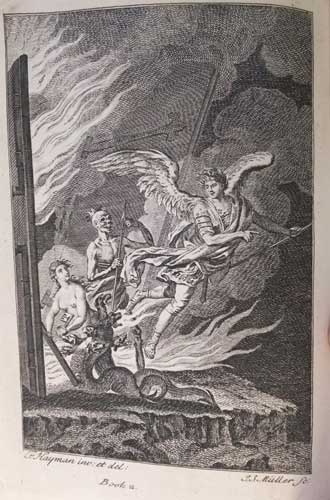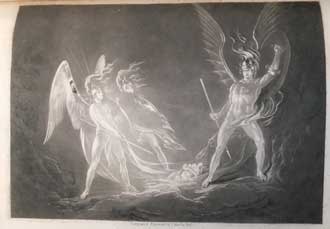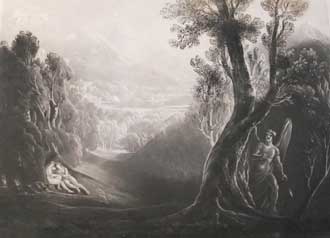John Bunyan
John Bunyan’s The Pilgrim’s Progress (Part 1, 1678; Part 2, 1684) is considered second only to the KJB in being the most influential religious work ever published in English. The Pilgrim’s Progress is an allegory which takes the form of a dream.
Part 1 tells the story of Christian who reads in a book (the Bible) that indicates the city he lives in will be burned. Taking heed of the Evangelist, he flees the City of Destruction, and makes a pilgrimage through places such as the Slough of Despond, the House Beautiful, the Valley of the Shadow of Death and Vanity Fair until he reaches the Celestial City. On the way he meets various allegorical personages such as Faithful, Hopeful, and the Giant Despair. Part 2 recounts the pilgrimage of Christian's wife and children.
John Bunyan (1628-88) converted to Chritianity and became a popular Nonconformist preacher and writer. Regarded as a subversive influence by the Restoration authorities, he was arrested in 1660 for preaching without a licence. Bunyan spent several years in prison at various times, during which time he wrote both parts of The Pilgrims’ Progress. Bunyan’s writing style was as successful as his preaching: his combination of simplicity, passion and humour resonated with people of all ages and differing outlooks.
The Pilgrim’s Progress reveals many turns of phrase from both the Geneva Bible and the KJB. It has in its turn influenced English literary writers such as Dickens and Thackeray, and has been translated into over 100 languages.



